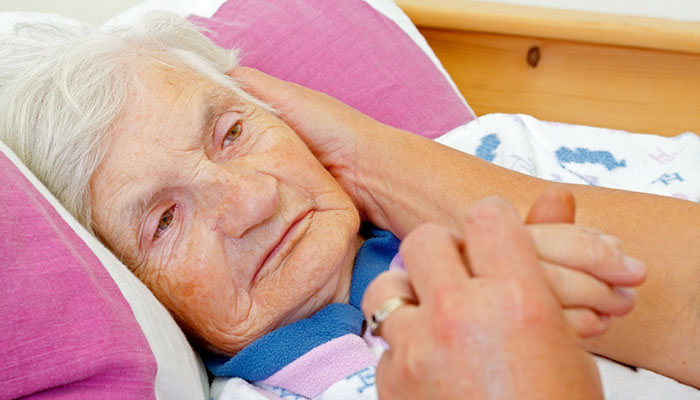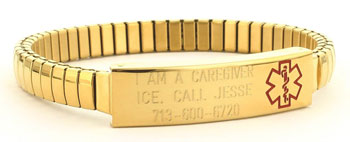Learn more at AgingWellMetroDC.com
Our Monthly Newsletter
Helpful tips for family caregivers
June/July 2017 Print
Talking to your parents about money
 In some families, money equals love. In others, it’s a measure of success.
In some families, money equals love. In others, it’s a measure of success.
Money is a sensitive subject, yet it needs to be discussed.
Part of supporting your loved one involves understanding his or her thinking about money. After all, something could happen where you suddenly need to step in and manage the finances.
Conversation starters. Ease into the topic rather than ask right away about account numbers and passwords.
- Seek their wisdom. “You’ve been around the block. I’m wondering if you might share any financial lessons you’ve learned. What worked? What didn’t?” Showing respect for his or her past experience may ease your relative into talking about money generally.
- Open with a story. “Mom, my friend’s mother had a stroke and he’s had a heck of a time trying to figure out her finances. Things happen. You never know. It occurred to me it might be wise to . . .”
- Check out benefits together. The federal government has a free BenefitsCheckup.org website. “Dad, I thought we might go through this together. You may be eligible for help with medications, utilities, or health care.” Working together to save money is a great way to begin a money talk.
- “What if’s.” “Mom, we might end up in a situation where I would need to pay the bills, say, if you were in the hospital. I want to be sure to do things the way you’d want them to be done. How would you want me to handle . . . ?”
- Share stories from the news. Perhaps there’s a new law that might be useful for your relative to know about.
- Talk about your own plans. “I was just preparing my living trust and power of attorney documents. I realized that I don’t know where your documents are.”
In the case of dementia. The sooner you have a money talk, the better. Your loved one needs to be lucid enough to express his or her desires and to sign legal paperwork.
Return to topIs it sepsis?
 Sepsis occurs when the body overreacts to an infection. Its occurrence is on the rise, and it is deadly.
Sepsis occurs when the body overreacts to an infection. Its occurrence is on the rise, and it is deadly.
You don’t catch sepsis from someone else. It’s a complication of an existing infection—of the lungs (pneumonia), bladder, or skin, for instance. With sepsis, the normal healing process goes awry. A too-massive immune response spreads through the bloodstream, causing inflammation throughout the body. Not caught in time, sepsis lowers the blood pressure dramatically. This in turn damages key organs. An estimated 15%–30% of people diagnosed with sepsis die from it. Serious stuff!
Signs of sepsis. The earliest signs in older adults include sudden confusion and extreme fatigue. Some people also experience a fever and chills, clamminess, nausea, faster breathing, and a faster heartrate.
Watch carefully. If the person you care for has an infection and is being treated with antibiotics, keep an eye on things. Make sure that medications are being taken as ordered. Ask yourself if the recovery seems to be progressing as you would expect.
If you see a sudden downturn, call the doctor immediately. The chances of a solid recovery from sepsis are much better if your loved one gets to urgent care or the hospital and is treated within a few hours.
Avoiding sepsis. Preventing infections is the best way to avert this dangerous condition.
- Get a pneumonia vaccine. Pneumonia is the most common infection to lead to sepsis. See our past articles on preventing pneumonia at home, avoiding pneumonia in the hospital, and preventing aspiration pneumonia.
- Stay current with the flu vaccine. Many people get pneumonia after the flu, so avoiding the flu is a great way to avoid pneumonia and potential sepsis.
- Clean scrapes and wounds thoroughly. Even a mild infection can trigger a septic reaction.
- Practice good hygiene. Washing hands and brushing teeth get rid of many of the germs that cause infections.
If the unexpected happens
As a family caregiver, you have probably thought a lot about your loved one’s safety. Perhaps you have even gotten him or her a wearable call button for medical emergencies.
But what if something happens to you? For instance, a car accident on the freeway? Or a trip-and-fall incident in a parking lot? How will emergency responders know that someone is depending on you for their health and safety?
A caregiver wallet card or bracelet provides a solution. A wallet card is something that you can make at home. It can include more information than a bracelet. But it must be with you at the time of the critical incident. (Did you bring your wallet with you on your walk this morning?) An ID bracelet, on the other hand, can be worn all the time.

Information to include. At a minimum, your ID should state: “I am a caregiver. ICE call [name, phone number].” “ICE” is short for “in case of emergency.” The idea is that this ID includes the name and phone number of an alternate caregiver who can step in. Of course, let your alternate know they are your backup and may get a call.
A more complete ID provides additional information:
- I, [your name], care for my [mother/father/aunt/spouse, etc.],
- [name of person you care for].
- Please call [name of alternative caregiver] at [phone number] to take care of him/her.
You might also identify your relative’s most critical medical need. For instance, specifying if he or she is an insulin-dependent diabetic, or has dementia, or needs a wheelchair.
Ideally, your relative might wear a similar ID bracelet or have a wallet card. This one would list his or her name and immediate medical needs. It would also list you as the first contact and an alternate if there is room. You never know when the unexpected might happen…
